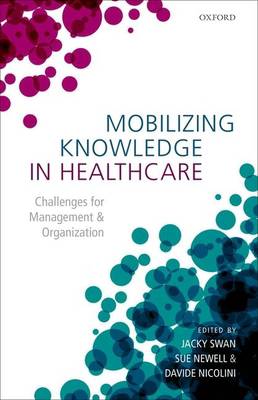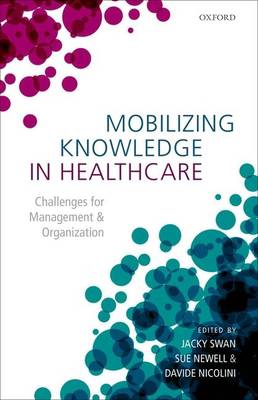
Vous voulez être sûr que vos cadeaux seront sous le sapin de Noël à temps? Nos magasins vous accueillent à bras ouverts. La plupart de nos magasins sont ouverts également les dimanches, vous pouvez vérifier les heures d'ouvertures sur notre site.
- Retrait gratuit dans votre magasin Club
- 7.000.000 titres dans notre catalogue
- Payer en toute sécurité
- Toujours un magasin près de chez vous
Vous voulez être sûr que vos cadeaux seront sous le sapin de Noël à temps? Nos magasins vous accueillent à bras ouverts. La plupart de nos magasins sont ouverts également les dimanches, vous pouvez vérifier les heures d'ouvertures sur notre site.
- Retrait gratuit dans votre magasin Club
- 7.000.0000 titres dans notre catalogue
- Payer en toute sécurité
- Toujours un magasin près de chez vous
Mobilizing Knowledge in Healthcare
Challenges for Management and Organization
Jacky Swan
Livre relié | Anglais
143,95 €
+ 287 points
Description
The research-practice gap is a persistent problem in healthcare - significant new knowledge is created but only some of it is shared and even less is used. As a consequence, many innovative ideas fail to change practice in healthcare settings. Academics, practitioners, and governments alike, agree that finding new ways of mobilizing knowledge is critical to reducing this gap. Yet knowledge mobilization is especially difficult in such a complex setting. This is because knowledge is essentially social and contextual in its very nature. Straightforward, linear 'transfer' models fail to work. This book provides an alternative 'knowledge mobilization' view, that examines in detail how knowledge is circulated and negotiated among those involved in healthcare, and how it is used to actually transform practice. Building on the collective scholarship of some of the most prominent academics in this area, the chapters explore the dynamics of knowledge mobilization, focusing on the challenges these pose for organization and management and how these challenges can be overcome.
Spécifications
Parties prenantes
- Auteur(s) :
- Editeur:
Contenu
- Nombre de pages :
- 286
- Langue:
- Anglais
Caractéristiques
- EAN:
- 9780198738237
- Date de parution :
- 14-09-16
- Format:
- Livre relié
- Format numérique:
- Genaaid
- Dimensions :
- 160 mm x 239 mm
- Poids :
- 566 g







